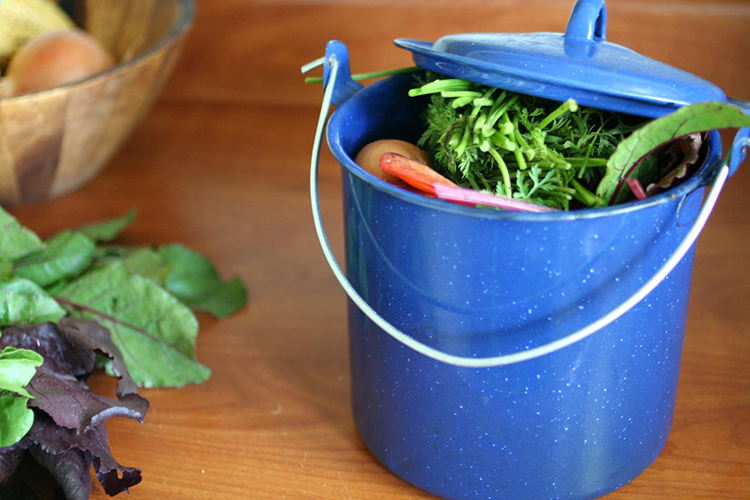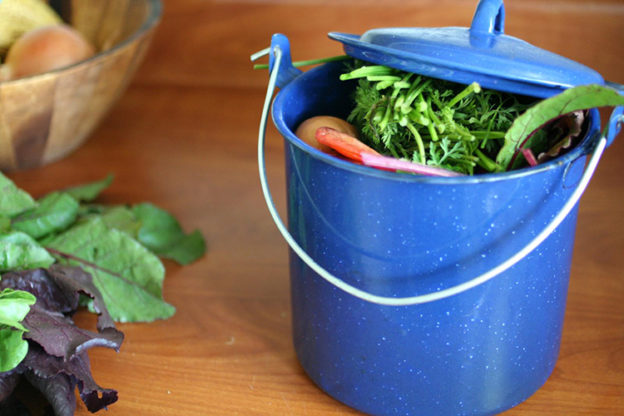
According to the Massachusetts Department of Environmental Protection, food waste makes up one-quarter of our state’s trash. That means your biodegradable apple cores and other plant based materials are needlessly taking up space in landfills and causing negative environmental impacts. But there’s an easy fix. Enter composting.
Composting is not new. In fact, as long as plants have been growing, compost has been happening. What do you think happens to all those leaves that fall off the trees in the forests? That’s right –- Mother Nature is the original compost queen!
Any good farmer will tell you that good compost is one of the best soil amendments around. What you should also know is that composting helps alleviate climate change.
Ready to take action? Sign the pledge and start composting. Or keep reading to learn more.
It Works Like This
When organic materials like food and yard waste break down in a compost pile, with plenty of air and water present, the carbon that is released is stored in the new compost, instead of being sent out into the atmosphere. This carbon sequestration –- keeping the carbon “locked up” — helps reduce the greenhouse gasses that contribute to climate change.
If those same organic materials break down in a landfill, greenhouse gases like carbon dioxide and methane are released, contributing to warming our planet.
An Easy to Access Solution
According to calculations from Project Drawdown, an estimated 38% of food waste was composted in the U.S. in 2015. In the European Union, that number is much higher: nearly 57%.
Compost can happen on large or small scales. Some cities already collect household food waste. In 2009, San Francisco passed an ordinance that makes composting the city’s food waste mandatory. In Copenhagen, Denmark they have not sent organic waste to landfill for more than 25 years
Many towns in Massachusetts have a compost facility or “stump dump” for yard waste that homeowners and landscapers can use. They won’t take your kitchen waste of course, but it’s not hard to compost in your own yard.
How to Compost at Home
There are a few ways to compost. If you want reduce your waste and get all of the resulting “black gold” dirt, you can set up a compost pile relatively easily at home — find out how. Or, you can take advantage of curbside composting with companies like Black Earth, Dirty Boys, and Bootstrap Compost. In some towns, you can even drop off diverted food materials.
Interested in learning more about composting basics and the relevant Massachusetts facilities, check out the resources provided by Mass DEP.
Pledge to Compost
If each one of us reduces our personal carbon footprint through composting, it can lead to significant reductions in greenhouse gas emissions across the state.
I pledge to start composting at my home or in my garden. If I am already composting as an individual, I will work with my school, employer, or community group to set up a pilot composting program in the next 6 months.
Updated May 30, 2019 to include Bootstrap Compost.



I live in a 25-unit apartment building. Personally, I take my compost to a friend’s to add to their pile. But I’d love for all in the building to have a convenient way/place to compost.
We compost with Garbage to Garden. They’re inexpensive, allows you to offset the cost with volunteer work (including with Mass Audubon), and they’ll give you free compost when they pick up your kitchen scraps. Great outfit!
I already give my compostable food waste to Cambridge, my primary city of residence, and do my own composting in Falmouth, when I am down there